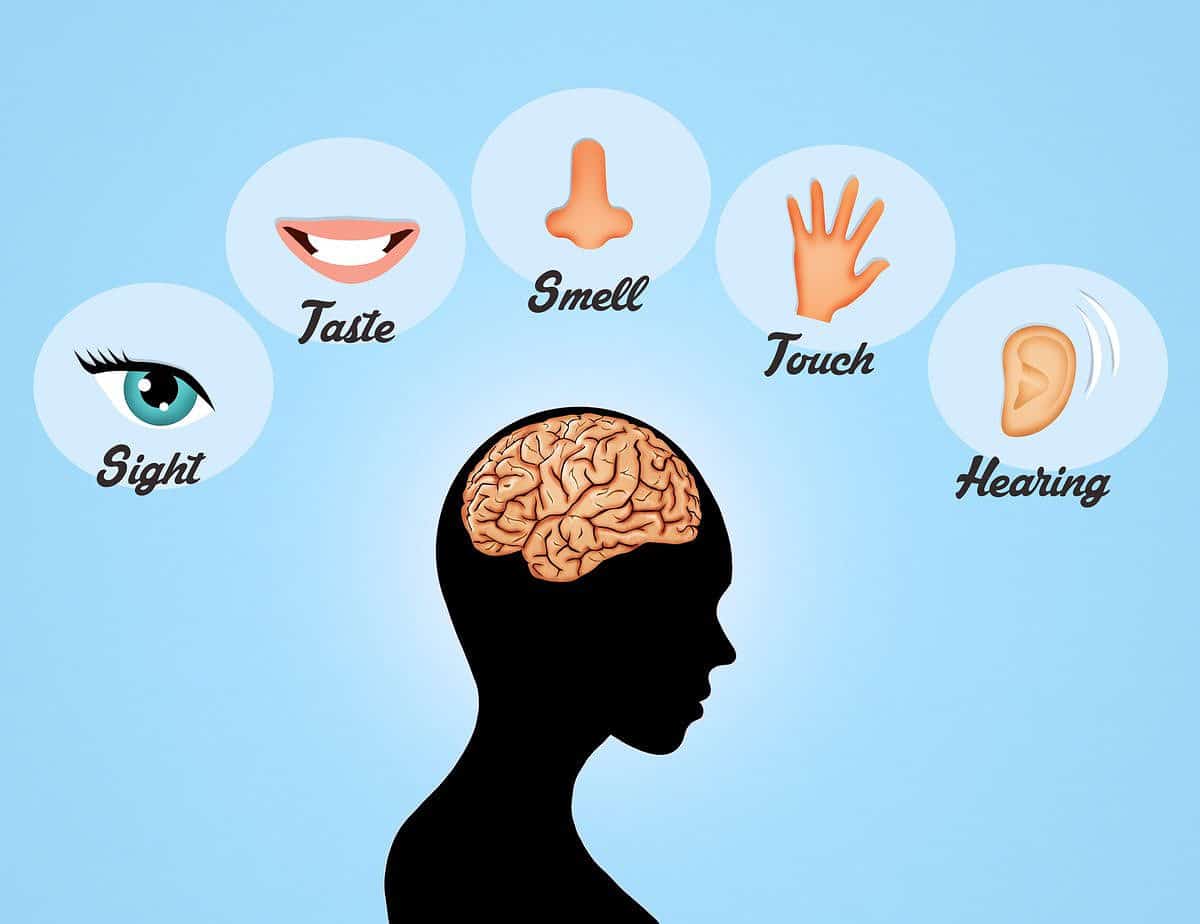When overloaded by stimuli in your environment and unable to filter or process anything around you, what happens?
Many people who have heightened sense and sensory overload feel dizzy, lightheaded, nauseous, confused, and disoriented. Often panic attacks occur, as does an inability to think clearly as too much information is coming at us.
What Are Heightened Senses?
Heightened senses are your awareness of the five primary human senses: sight, sound, taste, touch, and smell. Some people experience heightened senses more than others due to infection, pregnancy, or sensory processing differences.
Heightened senses can be both a positive and negative experience. Some people feel more alert and alive, while others may feel anxious or overwhelmed. Some may have a heightened sensitivity to sound but not taste or touch. Everyone’s experience is as individual as they are.
Why Some People Are More Sensitive To Their Senses Than Others?
Heightened senses can be overwhelming for some individuals as there are too many stimuli coming at them that they cannot process. Ones sensitivity to stimuli as compared to another is unique to that individual. A persons history may play role as may upbringing or exposure to multiple senses being stimulated at once.
Some of us are better able to filter and process the stimuli around us utilizing techniques to do so. For some people, it is a genetic trait. Others may experience it after taking certain drugs or medications. Any individual who is stressed, deals with anxiety, or depression, post traumatic disorder can have an increased heightened sensitivity. When stress overwhelms a person, this impacts how a person feels and thinks, which increases the emotions and bodily sensations in response to these sensory inputs.
High arousal levels and the inability to process the stimuli may also lead to increased anxiety, depression, panic disorders, or social phobias if not managed with methods designed specifically to help the person.
Learning to cope with heightened senses is an ongoing process. Much like learning how to spell, add 1 + 1=2, dealing with heightened senses is not something that we came out of the womb knowing. Taking the approach of I should know this will not be helpful to you.
Though you likely know how to walk today, and do so daily, there was a time when you did not, you needed to learn how. Once you learned how to walk you moved forward not giving it a second thought. Learning how to deal with heightened senses is much the same way.
How To Cope With Heightened Senses
Whether experienced or unexperienced in coping with heightened senses these four things will help you grow more confident and stronger to deal with your heightened senses:
Take a break from the stimuli: Taking a break from the trigger is the first step in dealing with being overwhelmed. If you are in a place where the stimuli are unbearable, take time to leave and go somewhere that feels safer.
Use a grounding technique to help you: This may involve holding something solid or breathing deeply for long periods until your mind can slow down with the world around it. Try different methods until there is one that works.
Refer to 100 Grounding Tools For The 5 Senses: Hearing, Sight, Smell, Taste and Touch for specific things you can try to ground yourself when your sense are heightened, or the 7 Best Grounding Tools
Rest when needed and get enough sleep, eat well, and stay hydrated: Keep hydrated by consuming liquids that support you, such as water. Get enough sleep to have the energy mentally and physically to deal with the stimuli around you. Eat foods that will give you a solid foundation to deal with the triggers around you.
Practice mindfulness meditation: Meditation creates space between your thoughts and emotions so you can utilize this method to assist when you are overwhelmed. View the guide Create A Better Life Through Mindfulness or watch the video below.
Our senses are stimulated every day, and avoidance of this stimulation can lead to isolation and loneliness. It is crucial to find ways to cope with the heightened senses and your response.
Talking through what’s going on for yourself may relieve a little bit of the stress from whatever situation came up. Anxiety is a natural reaction to having heightened senses, being overwhelmed or stressed, it’s our body telling us changes need to be made, so life does not feel so difficult.
I am empathetic to the feeling of being overwhelmed. I know what it’s like when you can feel everything and nothing at once, where you have so many emotions that they get jumbled up in your head together, making them difficult to decipher on their own.
When emotionally charged, our senses heighten, which leads to confusion and negative self-talk, which is not helpful. If the ideas here do not work for you, it is ok. Do not force yourself to continue but instead try other methods until you find one that works better for you.
Keep in mind that when one of your senses is over stimulated, your other sensations are suppressed. Avoid over stimulating your senses by reducing bright lights, loud noises, and strong smells. Reach out to find a therapist or a safe person to talk about what is going on. Talk to someone you trust.
A support system may sound like a setup for overstimulation, however, when you feel like your world has been flipped upside down, know there are people who care about you and want to help.






